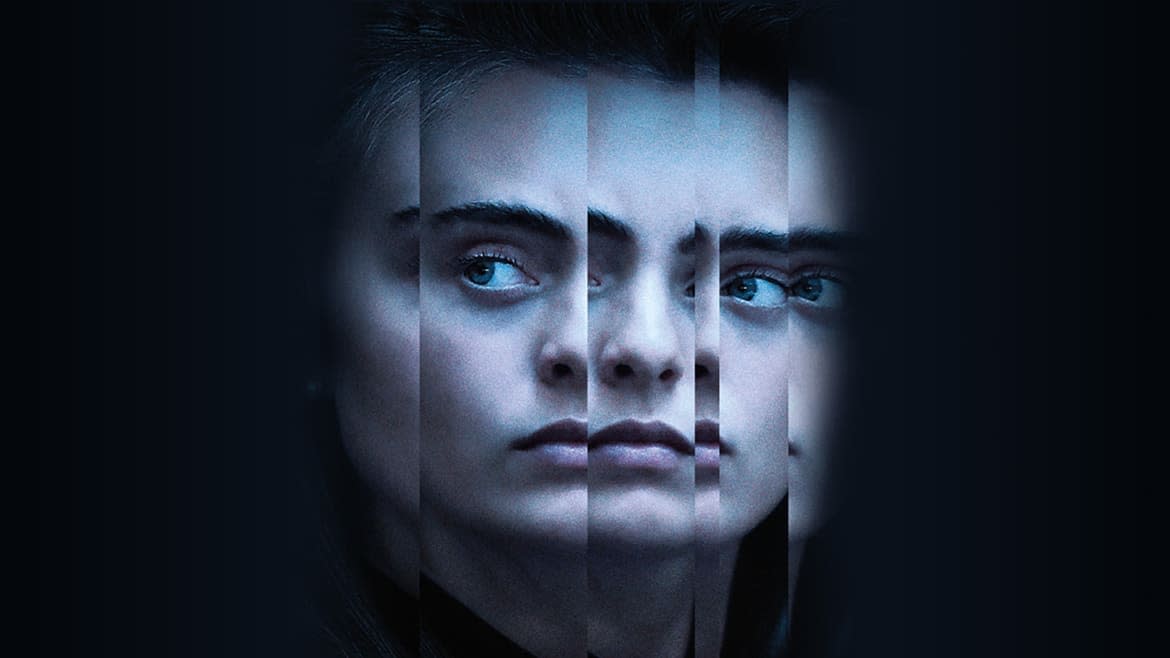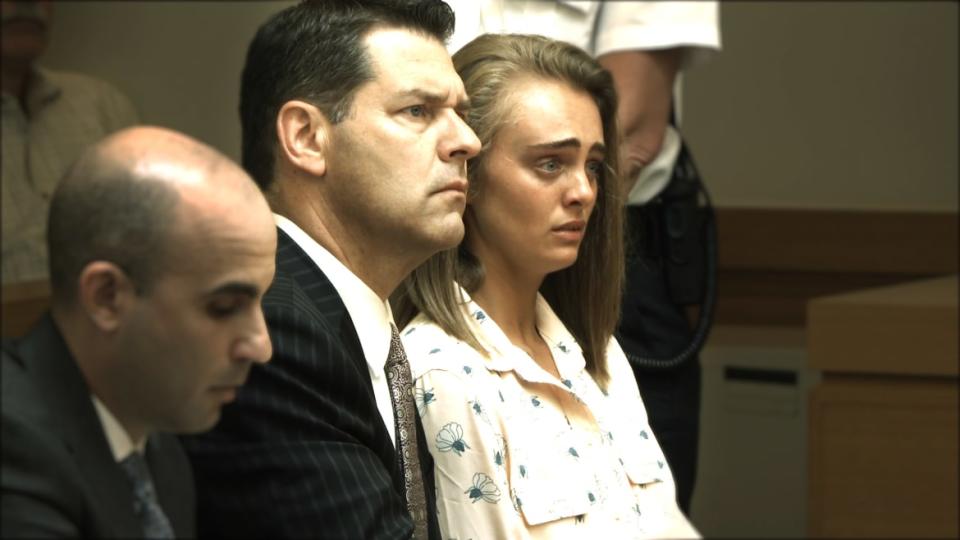‘Can Text Messages Kill?’: Inside the Strange Case of Michelle Carter in HBO’s ‘I Love You, Now Die’

In the summer of 2014, a Romeo and Juliet love story for the smartphone era went horribly wrong, and the nation was faced with an unprecedented question: Can text messages kill? The case of Massachusetts teen Conrad Roy’s suicide and his girlfriend Michelle Carter’s subsequent indictment for involuntary manslaughter immediately captured national attention. HBO’s upcoming documentary special I Love You, Now Die: The Commonwealth v. Michelle Carter, directed by Erin Lee Carr, offers a nuanced look at the infamous trial.
Conrad Roy III was 18 years old when he killed himself by carbon monoxide inhalation on July 13, 2014. According to prosecutors, Michelle Carter—widely reported to be Roy’s girlfriend, though they only actually met a handful of times—had bombarded the teenager with texts and calls urging him to follow through on his plans to take his own life. The transcript of texts from that day is shocking. “I thought you wanted to do this,” Carter, then 17 years old, texted Roy. “The time is right and you’re ready, you just need to do it!” She made him promise.
In between “I love you” texts and smiley faces, Carter offered advice on where to go and what time of day would be “less suspicious.” Allegedly, when Roy panicked and got out of his exhaust-filled black pickup truck, Carter told him to get back in. Many publications put this in quotation marks, as if it was another text message; in actuality, the conversation took place during a phone call of which no recording exists. It was Carter who later informed a friend that she told Roy to get back in the truck, but there is no written record. And as I Love You, Now Die illustrates, Carter is not necessarily a reliable source.
“I knew that there was more to the story,” director Erin Lee Carr, daughter of the late, great David Carr, told The Daily Beast, “so watching the media report on it was kind of disturbing, honestly. There was just this narrative that she told him to get back in and she texted him that, and that was completely false.”
The Curious Case of Michelle Carter: A Troubled Teen Who Encouraged Her Lover’s Suicide Via Text
The Wildly Popular TV Host Accused of Killing People to Boost His Ratings
In providing such a thorough examination of the details of the case, I Love You, Now Die highlights other areas where news coverage oversimplified the story of Roy and Carter. Though the pair exchanged thousands of text messages (often declarations of love), they did not refer to each other as boyfriend and girlfriend. Conrad’s mother, Lynn Roy, had no idea that Carter was close to her son. Carter’s friends testified that prior to Roy’s death, she always called him her friend, not boyfriend.
Carr also pushed back on the media portrayal of Carter as a beautiful, healthy, popular high school student. “Anybody who spends, like, two seconds with this case understands that she is somebody who suffers and deals with mental illness,” Carr said.
Throughout the film, interviews with local residents capture the sense of vitriol directed at Carter. One woman, wearing sunglasses and leaning out the window of her car, said, “I never met the girl, but I’ve seen pictures of her. She just has that look that I remember.” A photo from Carter’s indictment that accompanied much of the early media coverage of the case flashed on screen. Her lips are pursed, as if in boredom or contempt. “But I see that look,” the woman continued in her deep Massachusetts accent, “and it’s like, ‘You little snot. How could you do that to a human being?’” In moments like this, I Love You, Now Die serves as a powerful commentary on the extent to which media shapes public opinion.
Carr has been working on this project since the news first broke, reaching out to people for interviews in 2015 and 2016, then moving to Massachusetts for Carter’s trial in 2017. The 140-minute film is split up into two parts—prosecution and defense—mirroring the trial. When Carter’s legal team decided that she would have a bench trial, meaning the judge decides the case, Carr was initially disappointed that there would be no jury. She and co-producer Alison Byrne decided that talking to people in town would be the next best thing. “We wanted to gauge what Massachusetts, how they felt about her, because that would show us and inform us what it would have been like to have a jury trial,” Carr explained.
I Love You, Now Die includes interviews with members of the Roy family, Carter’s lawyer, witnesses, journalists who covered the trial, and townspeople. Carter’s family chose not to participate in the film, though Carr held out hope until the end. “While I understand [the decision not to participate], there was always a part of me that kept asking, kept asking, kept asking,” she said. Still, though she did not utter a word, except to surrender her right to a jury, it never felt like there was an absence of Carter’s voice.
“I think that one of the true selling points or unique points about this film is that you don’t often get 10,000 text messages from a potential subject,” Carr said. “Her voice is so resonant and so much a part of the piece.”

Michelle Carter in court in I Love You, Now Die.
Often the film lets these messages speak for themselves. Text bubbles appear one after another on screen, with the familiar chime of the iPhone notification ring mimicking a real-time conversation. According to Carr, the authenticity of the messages provides value that you can’t necessarily get from an interview, answering the question, “What does she say when she’s not being watched?”
The film is Carr’s third installment in a series of HBO true crime documentaries. I Love You, Now Die’s predecessors, Thought Crimes and Mommy Dead and Dearest, have in common a focus on the way modern communication technology complicates criminal cases. “I think it’s really about how we communicate with others and how we interact with our own loneliness,” Carr said, describing what she believes to be the main takeaway of the film. “I think Michelle Carter and Conrad Roy were incredibly lonely and they confided in each other because they thought others weren’t listening.”
Earlier this week HBO and Carr arranged a private screening of the finished documentary for Roy’s mother, Lynn Roy. Reluctant to speak on Lynn Roy’s behalf, Carr told The Daily Beast that she thinks it was an extremely painful experience for the grieving mother. “That being said,” she explained, “we had a discussion after and she looked me in the eyes and said it was well done… For somebody who’s been through what she’s been through, for her to say that it worked and it was okay was one of the most gratifying experiences of my life.”
Got a tip? Send it to The Daily Beast here
Get our top stories in your inbox every day. Sign up now!
Daily Beast Membership: Beast Inside goes deeper on the stories that matter to you. Learn more.

